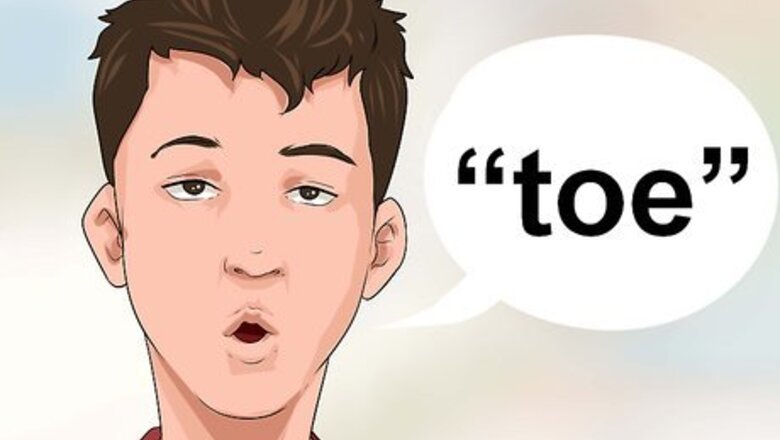
views
Learning a Basic "Thank You"
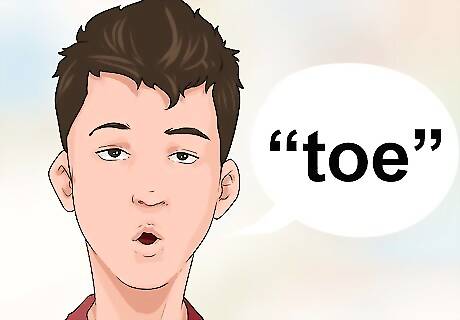
Say "toh." In Hebrew, the simplest, most common way to say "thank you" is "toda" (תודה). The first syllable is very similar to the English word "TOffee." Try to pronounce it with the tongue and lips at the front of the mouth to give it a very slight "oo" sound. You don't want to say "too," but the word shouldn't quite use a straight "oh" either.
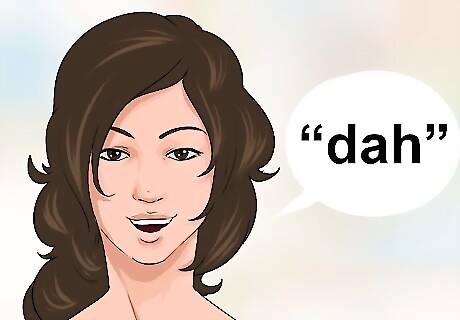
Say "dah." The second syllable in "toda" uses a standard English d Some Hebrew speakers pronounce it with a short a sound (like the a in "apple"). Try to open your mouth slightly when you pronounce this syllable. Say it with the middle or back of your mouth (not with your lips at the front) to get the perfect inflection.
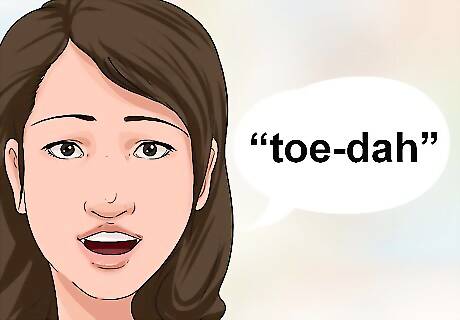
Put it all together with the accent on "dah." "Toda" is pronounced basically "toh-DAH," with the emphasis on the second syllable. A good example of the proper pronunciation and stress is available from Omniglot. This is important — putting the stress on the first syllable ("TOH-dah") will make the word sound bizarre and may make it hard to understand you. It's like pronouncing the English word "enough" as "EE-nuff," not "ee-NUFF."
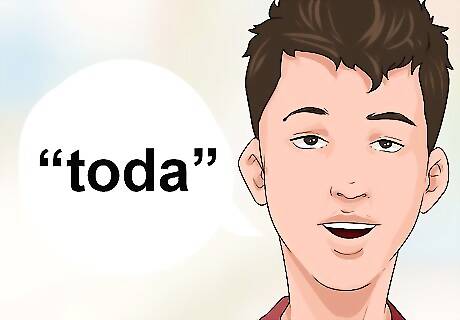
Use this word as an all-purpose "thanks." In Hebrew, "toda" is very, very common. You can use it to give thanks in virtually any situation. For instance, it's a good choice when you are served food, when someone gives you a compliment, or when someone gives you a helping hand. One of the nice things about the Hebrew language is that it doesn't have strict rules about which words to use in formal situations and which to use in informal ones (like, for instance, Spanish). You can say "toda" to your little brother or to the CEO of the company you're working for — it doesn't matter!
Learning "Thank You" Variations
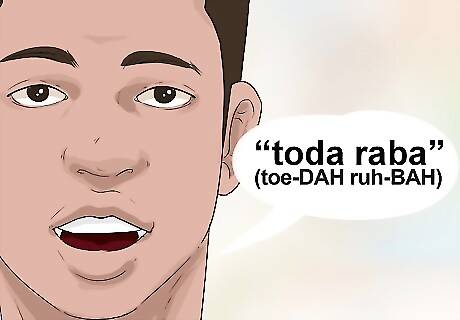
Use "toda raba" (תודה רבה) for "thank you very much." While "toda" is perfect for your everyday "thank yous," sometimes, you'll want to express that you're especially thankful for something. In this case, try "toda raba," which is roughly equivalent to "thank you very much" or "thanks a lot." This phrase is pronounced "toh-DAH rah-BAH." "Toda" is exactly the same as above. The r in "raba" is pronounced very delicately at the back of the throat. It is very similar to the French r (as in "au revoir"). Note also that the stress is on the "bah" in "raba" (just like in "toe-DAH").
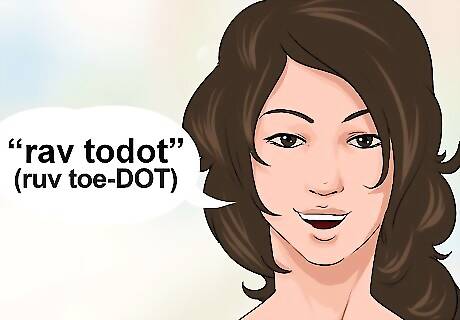
Alternatively, use "rav todot" (רב תודות) for "Thank you very much." The meaning here is roughly the same as for "toda raba".However this word is used very rarely. This phrase is pronounced "ruv toe-DOT." Remember to use the soft, "French" r sound at the back of the throat, rather than a hard English r.
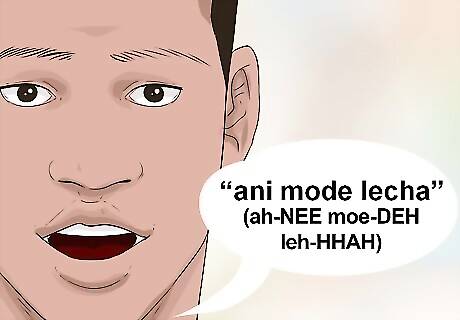
Use "ani mode lecha" (אני מודה לך) if you're a male. While Hebrew doesn't have strict tenses and word forms for formal situations, but if you want to say thank you in a very polite, formal way, you can use gender-specific grammar. This specific phrase is used when the speaker is a man. It doesn't matter what gender the person being thanked is. This phrase is pronounced. "ah-NEE moe-DEH leh-HHAH." The most difficult sound here is the "hah" at the end. It's not quite like the English "ha" used for laughter. The first h uses a raspy, almost r-like h sound produced in the back of the throat. It's the same sound used in traditional Jewish words like "Chanukah," "chutzpah," and so on.
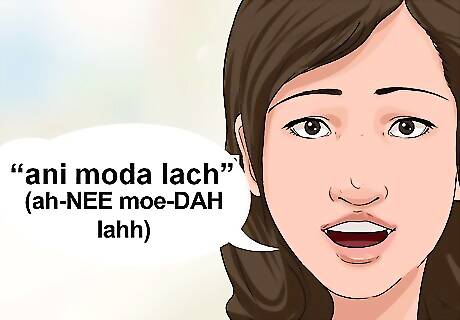
Use "ani moda lach" (אני מודה לך) if you're a female. The meaning here is exactly the same as for the term above. The only difference is that it's used by females. Again, the gender of the person you're talking to isn't important. "ah-NEE mo-DeH lach. Here, we're ending "lach" with the "chutzpah" h sound discussed above. Note also that the second word in the phrase ends with a "dah" sound, not a "deh" one.











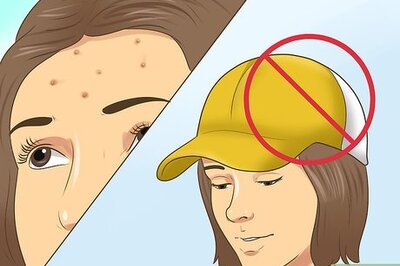
Comments
0 comment